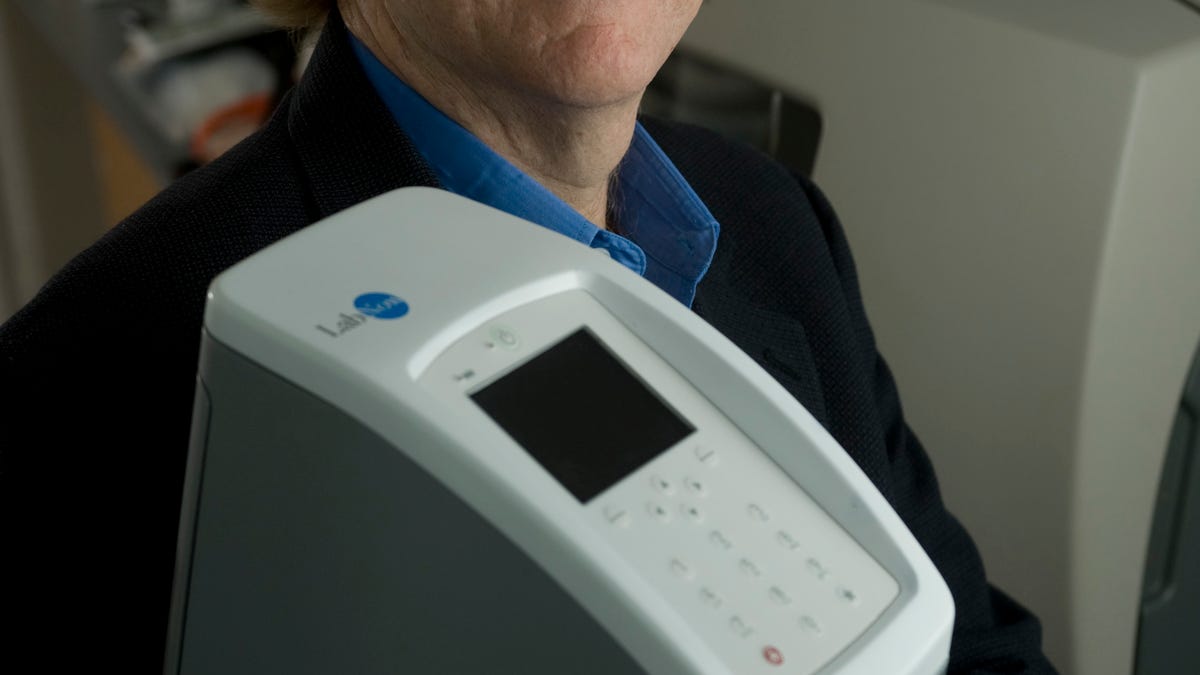Gentle touch of nanochip can detect oral cancer
Researchers at Rice University find a simple swipe of a diagnostic biochip to be 93 percent "specific" in detecting which patients had malignant and premalignant lesions.

Researchers at Rice University have found that a simple swipe of a diagnostic biochip is 93 percent "specific" in detecting which of 52 patients being studied had malignant, as well as premalignant, lesions--results they say compare well with traditional (but more invasive) screening.
"One of the key discoveries in this paper is to show that the miniaturized, noninvasive approach produces about the same result as the pathologists do," says John McDevitt, the Brown-Wiess Professor of Chemistry and Bioengineering at Rice, in a news release this week.
McDevitt's lab developed the novel nano-biochip technology at the university's BioScience Research Collaborative. Their study was published last week in the journal Cancer Prevention Research.
Nano-biochips are semiconductor-based devices that can capture, stain, and then analyze biomarkers to diagnose a range of issues, from heart disease and HIV to trauma injuries. The chips could dramatically cut the cost of medical diagnostics around the globe in the coming years.
Oral cancer affects some 300,000 people every year, with some 35,000 expected to be diagnosed in the U.S. in 2010. While the five-year survival rate is around 60 percent, early detection can push that number to 90 percent.
What's so promising about this minimally invasive screening is not only that it is less painful than a biopsy, but results are ready in 15 minutes instead of several days.
"People trained in this area don't have any trouble finding lesions," McDevitt says. "The issue is the next step--taking a chunk of someone's cheek. The heart of this paper is developing a more humane and less painful way to do that diagnosis, and our technique has shown remarkable success in early trials."
The device will be studied in a larger trial involving 500 patients in Houston, San Antonio, and the U.K., with hopes to apply for FDA approval in two to four years. Meanwhile, McDevitt and his team are working on a chip that can differentiate between premalignancies and the 95 percent of lesions that will not become cancerous.
Eventually, McDevitt predicts, dentists looking for early signs of the disease could test for cancer right there in the chair, drastically improving survival rates.

